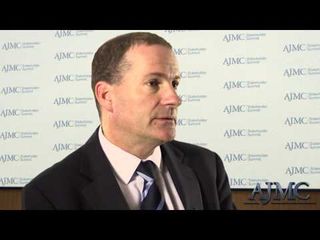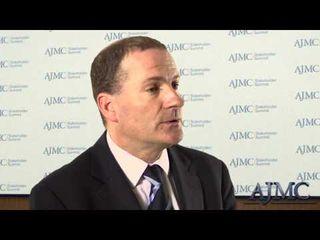
Oncology
Latest News
Latest Videos

CME Content
More News

The analysis by Anthem Inc, has identified a need for more widespread implementation of these interventions aimed at reducing healthcare utilization.

The study, published in the New England Journal of Medicine failed to confirm epidemiologic and preclinical data that vitamin D and calcium can reduce the risk of colorectal neoplasia.

One way to make all patients with cancer, regardless of socioeconomic status, feel like they're on the same level when receiving treatment is to ensure they know they're being taken care of, said Mary Lou Smith, MBA, co-founder of the Research Advocacy Network.

The Samfund, the first and largest group created to help young adults address the costs of cancer, is featured in the current issue of Evidence-Based Oncology, a publication of The American Journal of Managed Care. Samfund officers Samantha Watson, MBA, and Michelle S. Landwehr, MPH, address the challenges of "financial toxicity" for young adult survivors.

A panel discussion during the 2nd PMC/BIO Solutions Summit identified barriers and discussed the path forward to improve clinical integration of precision medicine.

The financial aftereffects of cancer have a tremendous impact on young adults as they move forward with their lives after treatment.

Updates on FDA approvals and extended indications for oncology drugs.

Evaluation of Prosigna's risk of relapse score as a predictor of response to multiagent neoadjuvant chemotherapy in HR+/HER2 breast cancer patients.

An update on recent progress in oncology managed care.

The Patient-Centered Oncology Care meeting provides a great opportunity for stakeholders from across healthcare to get together, and when that happens very good things can come from it, according to Peter Bach, MD, MAPP, director of Memorial Sloan Kettering Cancer Center's Center for Health Policy and Outcomes.

Earlier this year, the legislature laid the groundwork for Medicaid expansion to occur in 2016.

The American Society of Clinical Oncology has issued a statement asking for an improved evidence base for treating older adults with cancer.

A new study, published in JAMA Oncology has identified a widespread gap in counseling services for patients who undergo BRCA testing.

A study presented at the European Society of Cardiology meeting has found that cancer increases cardiac stress, which is further accentuated by chemotherapy.

Stand Up 2 Cancer, in collaboration with the American Association for Clinical Research, will be funding innovative research grants with a potential to further translational cancer research.

Adolescent and young adult cancer patients face multiple barriers to ensuring adequate care: from unsure providers to financial constraints. Improved care coordination and recognition of the needs of this population can lead to much improved outcomes.

Evidence-Based Oncology spoke with Rajen Mody, MBBS, from the University of Michigan Health System, about his experiences treating young cancer patients, the survivorship program offered by the University of Michigan, and next generation sequencing.

Changes in the healthcare marketplace are steadily pushing changes for physicians and specialty practices of all kinds. Blaming the 340B drug discount program is both misleading and unproductive.

The new test, developed by Dako, will provide information on the survival benefit of patients with non-squamous NSCLC treated with nivolumab.

Top managed care stories this week include how much waiting to see the doctor costs patients, Express Scripts announced it will cover both PCSK9 inhibitors, and HHS proposed simplifying rules for providers using electronic health record.

A new study published in JAMA Oncology has identified disparate survival outcomes across sites of care.

The PD-1 inhibitor antibody was approved by the FDA for use in patients who have progressed on platinum-based treatment.

With the final guidance expected in November, UK will follow Europe in the use of pembrolizumab in treating advanced melanoma patients refractory to previous treatment as well as those who have not been previously treated.

With new treatments helping patients with cancer to live longer, healthcare providers now have new issues of long-term survivorship to consider, said Joseph Alvarnas, MD, the editor-in-chief of Evidence-Based Oncology.

Through a multi-site, multidisciplinary approach, AYA@USC addresses the unique needs of young adult cancer patients, improving outcomes and bridging the care gap in this population.












